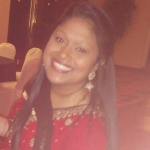This post was originally published on our partner website India.com:
Since childhood, I recall my parents instilling the value of education into my brain. At the impressionable and young age of five I received a doctor’s set for Christmas. But, I never really understood what it meant to be a doctor. There was an association with being a doctor that was so prestigious and that is something that I had been taught since before I had even started school.
When I started school the question of, “what do you want to be when you grow up?” would arise and I would reply “a doctor,” never fully grasping what a doctor did.
I had visited the doctor and understood what a check up was, but there was a larger picture at hand. I remember the years of elementary school that I would reply confusingly, “a doctor superstar,” wanting to be a singer and a doctor, all in one. The truth being, I wanted to be a singer, but I felt pressured into also saying a doctor.
My parents were not doctors, quite the opposite actually. I grew up with my mom at home and dad at work. My dad is mechanic and went to trade school. Neither of my parents went to college.
For a time, this puzzled me that these two people stressed education and being a doctor so heavily but neither had been through the experience themselves. As I grew older I understood, like many immigrants, my parents wanted everything for their children that they did not have—education being one of them.
I once asked my parents why being a doctor was so prestigious.
“Doctors are like Bhagwan (God) they have the power to bring life into the world and cure the sick,” my mom said.
This is a common desi belief. But it was not enough to convince me to become a physician.
I wanted to want to be a doctor, but science and math were not my forte. I was in high school, trying to convince myself to still be a doctor, but I did not take one science A.P. course, despite myself persuasion.
I did not know what I wanted to pursue, but I knew it was not medicine. Still, I worried about disappointing my parents.
When I started college at Stony Brook University in Long Island, N.Y., I was certain that being a doctor was not for me but even telling my parents was nerve-racking. The day I told them they asked, “So if you are not a doctor what will you be?”
It was such an odd question to ask with the many professions that existed, and the endless possibilities for my future.
I was fortunate that at Stony Brook University I found my niche and calling for my career, my true passion was for South Asian studies.
Still, it was assumed by many that I was becoming a doctor merely because I was a South Asian. It was the stereotype that I could not kick despite my dearest efforts.
I recall one time entering the advising center and the women at the desk suggested that I may be in the wrong office because there was a special office for those students on the pre-med track—assumptions are terrible.
As impressionable, young, empowered South Asians, the opportunities are endless.
I would like to think that I did not fall into a stereotype because I was pressured into it but because I am following my dreams.
And like, Walt Disney said, “All dreams can come true if you have the courage to pursue them!”
 Subrina Singh is a passionate young writer. After completing her degree in all things Indian at Stony Brook University, she is now pursuing her Master’s Degree at Columbia University. More recently, she has become committed to using her experience with mental illness to help better the mental-health awareness within the South Asian community. Subrina enjoys writing, reading and drinking Starbuck’s Passion Tea Lemonade while singing Bollywood hits of the Golden Era. Follow Subrina on Twitter for her reactions to Pretty Little Liars every Tuesday night!
Subrina Singh is a passionate young writer. After completing her degree in all things Indian at Stony Brook University, she is now pursuing her Master’s Degree at Columbia University. More recently, she has become committed to using her experience with mental illness to help better the mental-health awareness within the South Asian community. Subrina enjoys writing, reading and drinking Starbuck’s Passion Tea Lemonade while singing Bollywood hits of the Golden Era. Follow Subrina on Twitter for her reactions to Pretty Little Liars every Tuesday night!




